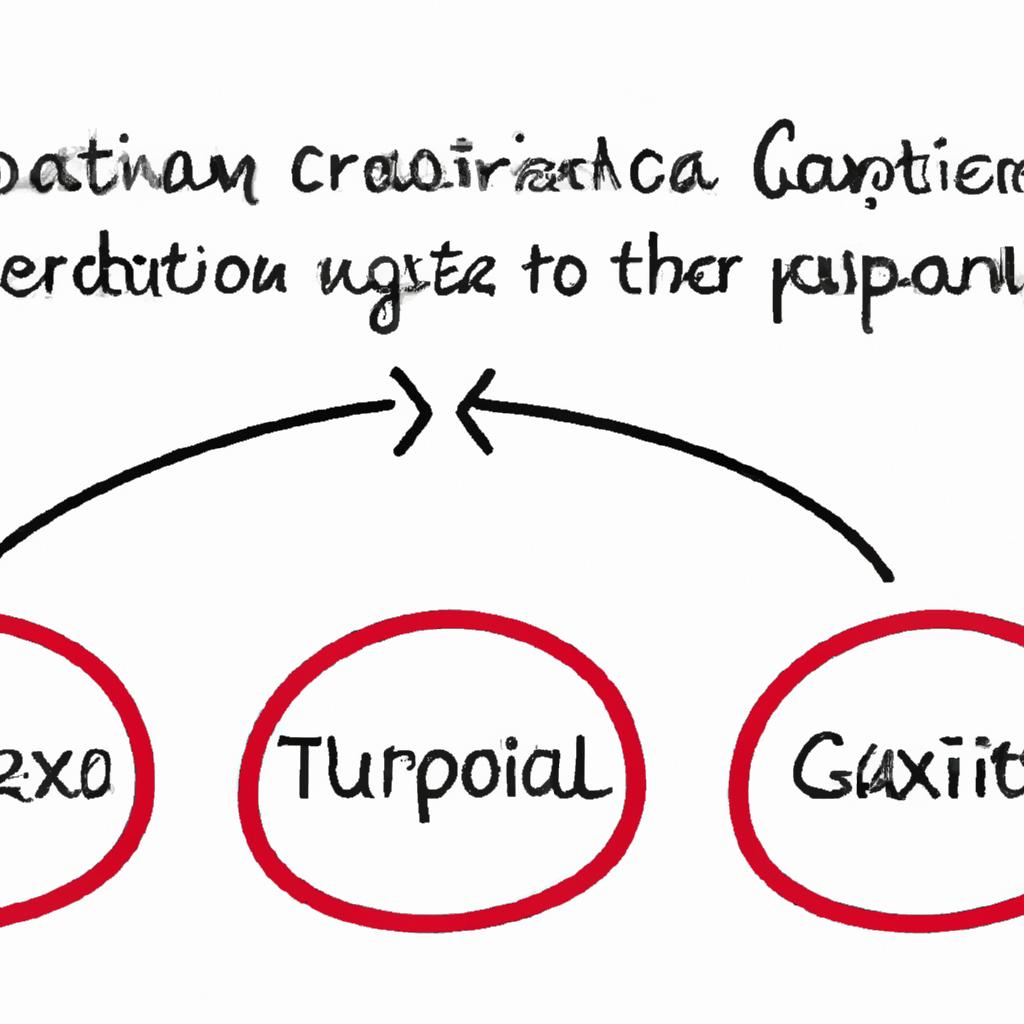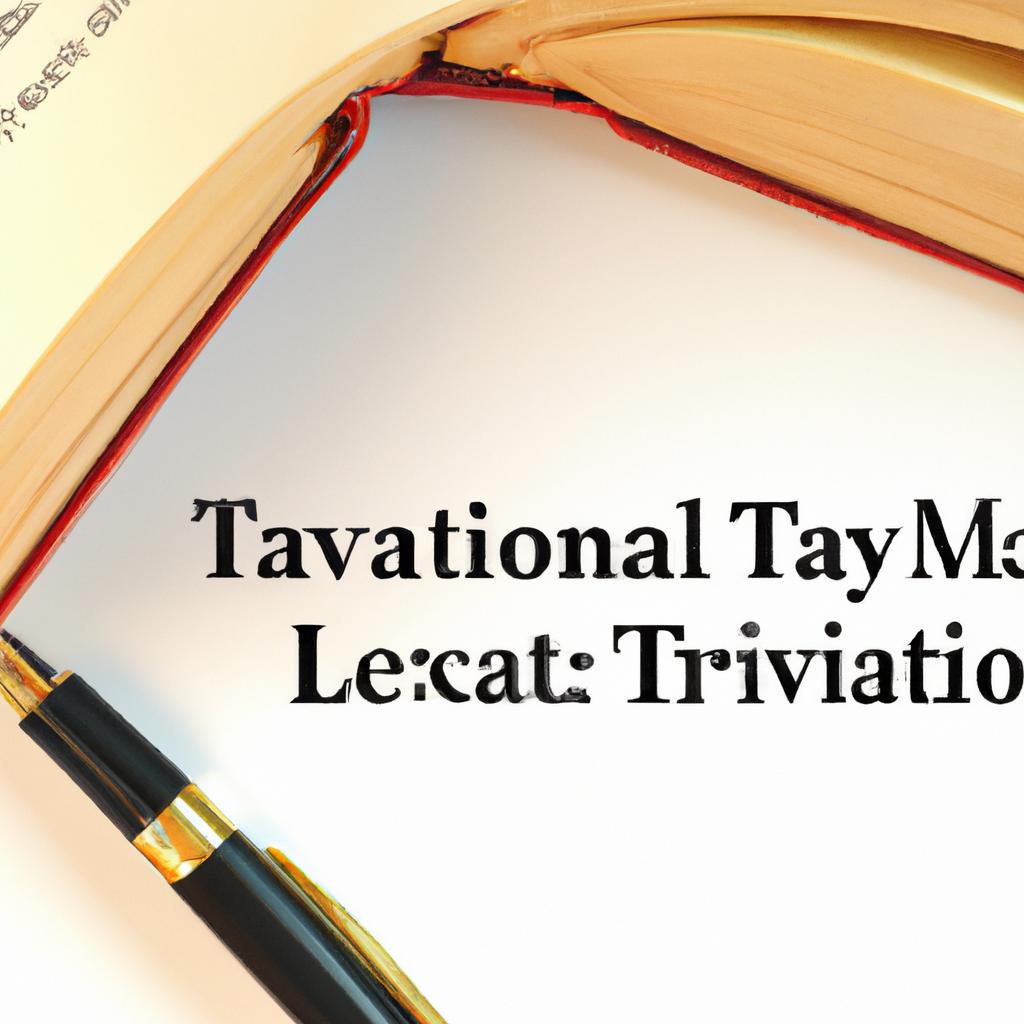In the intricate web of estate planning, one crucial tool often utilized is the capital gains tax trust. As experienced legal professionals at Morgan Legal Group in New York City, we understand the complexities and implications of this trust structure. From maximizing tax savings to ensuring a smooth transfer of assets, the capital gains tax trust plays a pivotal role in safeguarding wealth for future generations. Join us as we delve into the intricate world of capital gains tax trusts and unravel the essential considerations for effective estate planning.
Understanding the Implications of Capital Gains Tax within Trust Structures
Within trust structures, the implications of capital gains tax can be complex and require a thorough understanding to navigate effectively. When assets within a trust are sold at a profit, capital gains tax may apply, impacting the overall financial picture of the trust.
It is important to consider the following key points when discussing capital gains tax within trust structures:
- Trust Type: Different trust types may have different implications for capital gains tax.
- Trust Duration: The length of time assets are held within the trust can impact the amount of capital gains tax owed.
- Estate Planning Strategies: Utilizing estate planning strategies can help minimize the impact of capital gains tax within trust structures.

Maximizing Tax Efficiency through Strategic Trust Planning
When it comes to , considering the use of a capital gains tax trust can be incredibly beneficial. By utilizing this type of trust, individuals can minimize the impact of capital gains taxes on their investments, ultimately leading to greater wealth preservation and growth over time.
One of the key advantages of a capital gains tax trust is the ability to defer capital gains taxes until the assets held within the trust are sold. This can be particularly advantageous for individuals with assets that have appreciated significantly in value, as it allows for the continued growth of investments without the immediate tax burden. Additionally, by carefully structuring the trust and strategically allocating assets, individuals can potentially reduce their overall tax liability and maximize their after-tax returns. Working with a knowledgeable estate planning attorney can help ensure that a capital gains tax trust is properly established and managed for optimal tax efficiency.

Mitigating Tax Liabilities with Expert Guidance on Capital Gains Tax Trusts
is essential for individuals looking to optimize their financial strategy. By leveraging the expertise of professionals in estate planning and tax law, individuals can effectively navigate the complexities of capital gains tax trusts to minimize their tax burden and maximize their financial opportunities.
With the right guidance, individuals can strategically structure their assets within capital gains tax trusts to benefit from favorable tax treatment and ensure compliance with relevant regulations. Trusts can offer various advantages for managing capital gains tax liabilities, including deferring taxes, reducing tax rates, and protecting assets for future generations. By working with experienced professionals, individuals can develop a tailored approach to capital gains tax trusts that aligns with their financial goals and minimizes potential tax risks. Trusts can be a powerful tool for wealth preservation and tax optimization, making them a valuable resource for individuals seeking to enhance their financial security and achieve long-term success.
Navigating Complex Tax Laws to Optimize Wealth Preservation in Trusts
When it comes to navigating complex tax laws in trusts, one area that requires careful consideration is capital gains tax. Understanding how capital gains tax applies to trusts can help optimize wealth preservation for beneficiaries. In general, capital gains tax is incurred on the appreciation of assets when they are sold for a profit. However, when it comes to trusts, there are specific rules and regulations that dictate how capital gains tax is calculated and paid.
One way to minimize capital gains tax in trusts is through strategic estate planning. By utilizing tools such as a qualified personal residence trust (QPRT) or a grantor retained annuity trust (GRAT), individuals can transfer assets into a trust while retaining some control over them. This can help reduce the tax burden on beneficiaries while still allowing for wealth preservation. It is important to work with a knowledgeable estate planning attorney who can help navigate the intricacies of capital gains tax in trusts and develop a customized plan to optimize wealth preservation.
Q&A
Q: What is a capital gains tax trust?
A: A capital gains tax trust is a legal structure that allows individuals to hold assets and investments in a tax-efficient manner, specifically designed to minimize the capital gains tax liabilities.
Q: How does a capital gains tax trust work?
A: Essentially, a capital gains tax trust works by transferring ownership of assets to the trust, which then manages and distributes them according to the terms specified by the grantor. By doing so, the trust can help reduce the tax burden on capital gains realized from the sale of those assets.
Q: What are the benefits of setting up a capital gains tax trust?
A: The primary benefit of a capital gains tax trust is the potential to defer or even eliminate capital gains taxes on assets held within the trust. Additionally, trusts can offer asset protection, estate planning benefits, and privacy for the beneficiaries.
Q: Who can benefit from a capital gains tax trust?
A: Anyone who holds significant assets or investments that may be subject to capital gains taxes can potentially benefit from setting up a capital gains tax trust. Individuals looking to minimize their tax liabilities and protect their assets for future generations may find a trust to be a valuable tool.
Q: Are there any drawbacks to setting up a capital gains tax trust?
A: While capital gains tax trusts can offer significant tax benefits, they also come with administrative costs, legal complexities, and restrictions on access to assets. Additionally, not everyone may qualify for a trust or find it necessary based on their financial situation. It’s important to carefully consider all factors before setting up a trust.
Concluding Remarks
In conclusion, a capital gains tax trust can be a useful tool for managing and protecting your assets while minimizing tax liabilities. By strategically utilizing this type of trust, individuals can ensure their wealth is preserved for future generations. As always, consulting with a trusted financial advisor or estate planning professional is recommended to determine the best approach for your specific financial goals and circumstances. So why wait? Start exploring the possibilities of a capital gains tax trust today and secure a more financially sound tomorrow.






